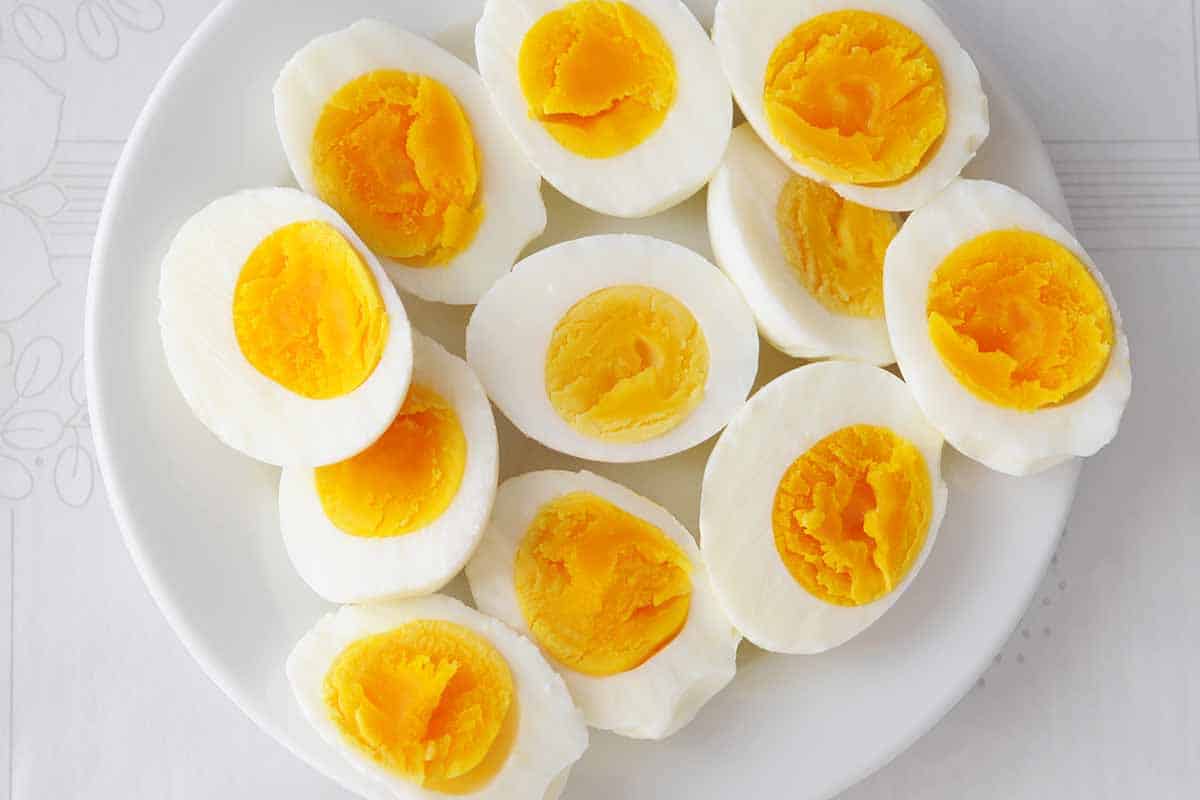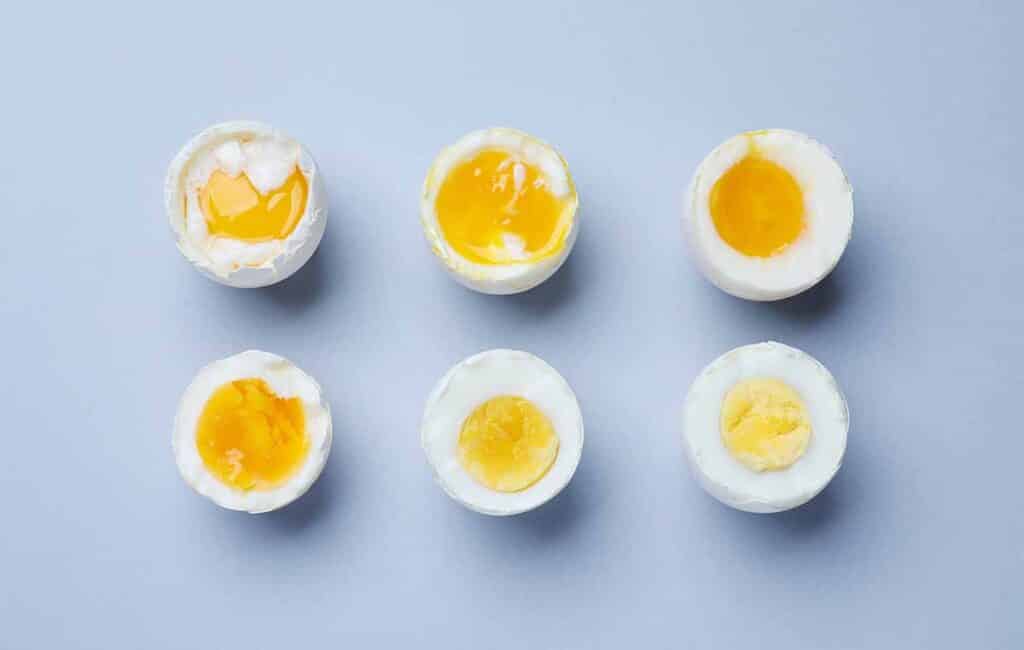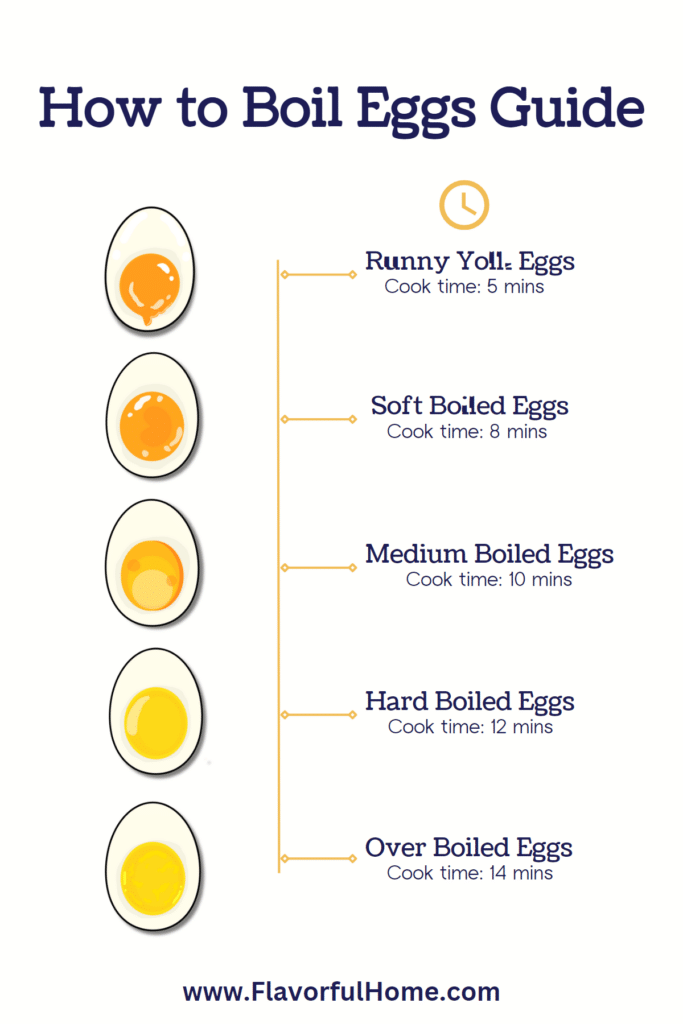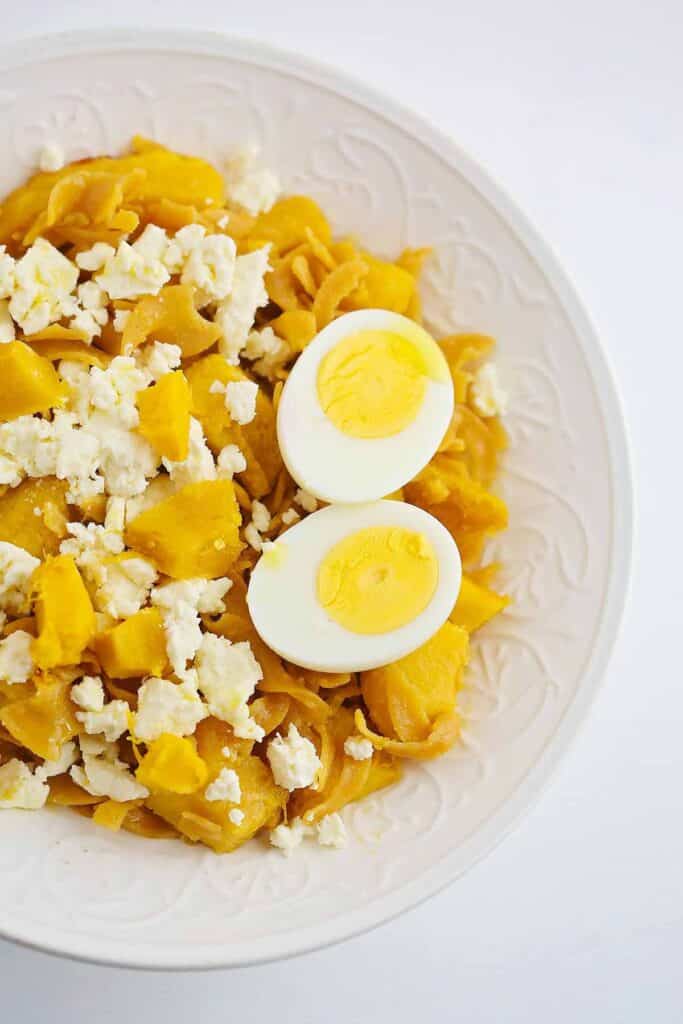Boiled eggs are a popular choice for breakfast. If you’re wondering how long to boil eggs, we have the answers.
Eggs are easy and quick to make, especially if you know the proper techniques. Read on and find out the boiling times for different type of eggs.

Knowing how to boil an egg is one of the easiest things you can learn in the kitchen.
These eggs are highly versatile. If you know how to make them, you unlock countless possibilities.
After all, there are so many recipes you can make with eggs.
Here’s how to boil eggs perfectly:
The time you need to boil the eggs depends on how cooked you like them to be.
The longer they stay in boiling water, the firmer they’ll become.
In general, the best boiled eggs take anywhere between 5 to 12 minutes.

To get barely set egg whites with a runny yolk, 5 minutes boil time is recommended.
These eggs are perfect for dipping toast soldiers as the yolk is still liquid.
The egg white is already set, so it can perfectly hold the yolk at this point.
The yolk still has the vibrant orange color at 5 minutes, too.
Go for 8 minutes to get soft-boiled eggs with firmer whites.
Doing so also cooks the yolks just enough for them to be semi-solid and jammy.
Yolks of these eggs are still primarily orange in hue.
Boiling for 10 minutes gets you medium-boiled eggs.
These eggs have set whites and set but softer yolks.
Some people prefer their eggs not soft-boiled, but not cooked enough to be hard-boiled.
Medium-boiled eggs have yolks that have started to turn a flat yellow color but still have some tinge of orange in some parts.
12 is the magic number to achieve the perfect hard-boiled eggs.
Boiling for 12 minutes gives enough time for the yolks and whites to become hard and set.
These eggs have a solid matte yellow yolk, not a hint of orange left.
If you leave your eggs boiling for 14 minutes or longer, you’ll have over-boiled eggs.
The whites will be rubbery, while the yolks will be chalky and crumbly.
The telltale sign, though, of an overboiled egg is a green ring surrounding the yolk.
Here is an infographic you can save to get the timing right every time.

After cooling, the next step would be to peel them. Peeling these eggs can be a tricky endeavor.
Surely, you’ve experienced peeling eggs only to have some whites sticking to the shell. The result? You end up with ugly-looking instead of shiny and perfectly oval eggs.
Of course, those eggs are still edible, but they are less appealing than the picture-perfect eggs you have in mind.
The good thing is that there are things you can do to make this task easier.

Here are some tips to peel hard-boiled eggs effectively:
It turns out that the ease of peeling eggs does not rely solely on the technique.
The age of the eggs also plays a role in this case. Fresh and younger eggs are more difficult to peel.
For this reason, if you farm fresh eggs or have access to chickens in your backyard, let the eggs sit out for a week before boiling them.
For easier peeling, ensure that the eggs are completely cool.
Hot or warm eggs tend to stick to the shell, making them difficult to peel.
As a result, your eggs won’t be smooth after peeling as you will remove some parts of the white as you peel them.
Doing the peeling under running water also helps.
The water loosens the grip of the egg from the shell. It also flushes away any small particles that might stick to the egg.
Placing a strainer on the sink is a must for easier cleanup afterward.
The wider end of the egg usually has an air pocket.
This air pocket is a great starting point for peeling, making it easier to get a hold of the shell.
A popular technique for peeling eggs is to tap and roll them on a hard surface like your kitchen counter or table.
Doing so creates little cracks in the shell and loosens it.
Pick a part of the shell starting on the wider end after rolling, and the rest will peel easily.
Another convenient method is to place the egg in a small container with a lid along with some water.
Then, you must shake the container until some egg whites are showing.
Remove the cover and gently remove the shell pieces clinging to the egg.
As mentioned, eggs are versatile ingredients that many dishes call for. Here are some of the best recipes you can make with them.
This simple Southern tuna salad only uses 7 ingredients and takes 15 minutes to make. Plus, it’s gluten-free, low in carbs, and high in protein.
Another dish you can make is deviled eggs. Deviled eggs are shelled eggs with white cavities filled with a special mixture.
The filling consists of the yolk mixed with mayonnaise, mustard, and other spicy ingredients, hence the name.
A Cobb salad won’t be complete without hard-boiled eggs.
This healthy American salad combines eggs, bacon, leafy greens, avocado, and cheese, among other ingredients.
It tastes great with a ranch salad dressing or a red wine vinaigrette.
You may also pickle the eggs, which is great if you like to maximize their shelf life. Peel and submerge them in a brine, store them in the fridge, and eat them whenever you please.
This simple recipe pickled egg recipe serves 12 and only requires a week of preparation before you can enjoy them.
Yet another way to enjoy them is to spread them atop a toast.
This Avocado Egg Salad Toast Recipe uses no mayonnaise.
Plus, it only takes 20 minutes of prep time.
It is also worth your while to make Scotch eggs.
These eggs are coated with a layer of meaty goodness and breadcrumbs.
Try this recipe – it goes extra on the ingredients, but the results are truly decadent and will surely have you asking for seconds.
If you’re a fan of spicy food, an Egg Masala Curry dish is perfect for you. Like other Indian recipes, this one uses turmeric, cumin, coriander, and garam masala, among others.
Best served with roti or rice, this curry dish is a perfect Sunday morning family meal.

Proper storage is essential for maintaining not only the quality but also the safety of boiled eggs.
After all, leaving them at room temperature for more than 2 hours exposes them to the risk of bacteria growth.
It is best to let them cool completely before storing them in the fridge.
The good news is that according to the FDA, whether or not they still have shells does not affect their shelf life.
They will last for a week when you store them in the fridge.
For easier identification and monitoring, mark your eggs with the date they were boiled.
Remember, though, that several factors can affect the shelf life of these eggs. These factors include egg freshness, cooking methods, and refrigerator conditions.

If you have refrigerated a whole batch of boiled eggs, it is still best to check for signs of spoilage before consuming them.
Here are some signs to look out for if you’d like to be sure your eggs are still good:
One of the most obvious signs that a boiled egg has gone bad is a foul odor. If you get a whiff of a rotten smell, discard the eggs immediately.
If the eggs have turned chalky or slimy, they’re already unsafe for consumption.
Any sign of moisture is also never a good thing. The egg should be dry when you crack it open.
If your boiled eggs have no odor and have a good texture, the last thing you should do to check their quality is to do a taste test. If they have a funky, unusual taste, then it’s best to throw them out.
To make a hard-boiled egg, boil it for 12 minutes. This duration gives ample time for the yolks and whites to solidify and achieve the desired consistency. The resulting hard-boiled eggs boast immaculate solid matte yellow yolks.
You’ll get medium-boiled eggs if you boil the eggs for 10 minutes. Medium-boiled eggs have set whites and yolks that are set but still somewhat soft. This doneness level suits those who prefer their eggs in between soft-boiled and hard-boiled.
For a soft-boiled egg with a firmer white, set your timer to 8 minutes. This duration effectively cooks the yolks to a delightful semi-solid and jammy consistency with a vibrant orange hue.
If you store them properly in the fridge, boiled eggs will stay good for around a week. It’s always better to keep the shells intact until you’re ready to eat them to maintain their freshness. They act as an additional layer of protection.
Knowing how long to boil eggs is crucial to achieve the desired level of doneness. It enables you to savor the eggs according to your preference. To boil eggs effectively, it is best to adhere to a straightforward process: submerge them in boiling water, set the timer based on the doneness you like, and cool them in an ice bath.
Simplifying the peeling of hard-boiled eggs can be done by using certain tactics, such as picking older eggs, ensuring complete cooling, peeling under running water, and starting from the wider end. You may also try using techniques like tapping and rolling or the shake method.
Ensuring the quality and safety of boiled eggs calls for refrigeration. Doing so extends their shelf life to approximately one week. Before eating stored boiled eggs, inspect them for indications of spoilage, such as a foul odor or changes in texture.





